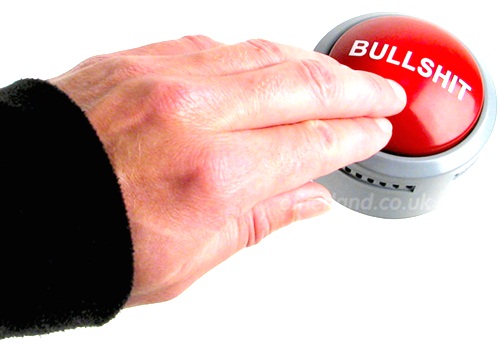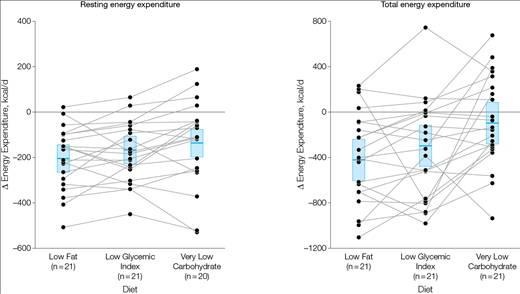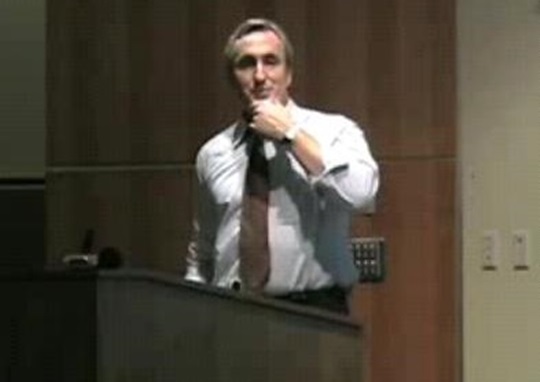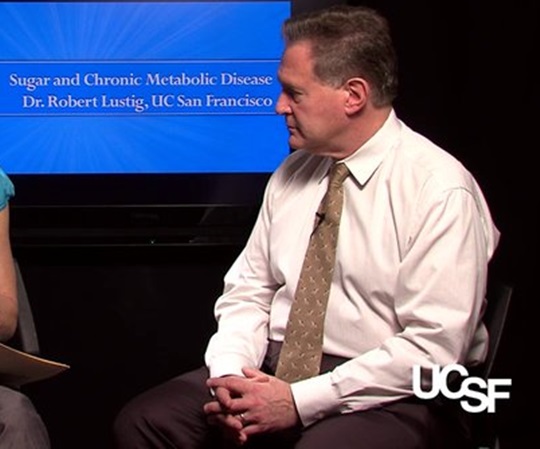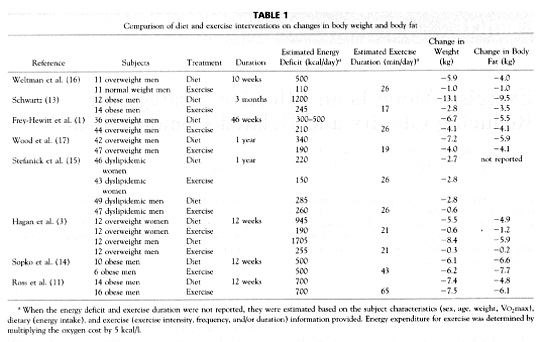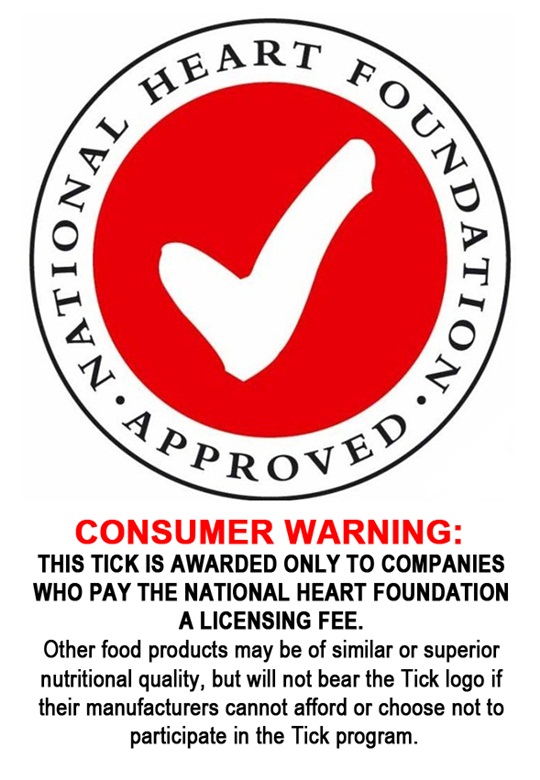Warning: This article contains strong language. Please close this page if you are a minor or easily offended.

This is the only photo I could find of Plant Positive, aka PrimitiveNutrition, aka Pee Pee: He’s too gutless to show his face, but just imagine the mindless authority-worship of Janet Brill, the sickening smugness of Michael Eades, the blatant reality evasion of Barry Groves, the intellectual dishonesty of Ancel Keys and the effemininity of Don Matesz all rolled into one. Not a pretty picture…
Sleazy is as Sleazy Does
According to the The American Heritage® Dictionary of the English Language, one of the main definitions of sleazy is:
“slea·zy Dishonest or corrupt; disreputable: Some sleazy characters hang around casinos.”
Some sleazy characters hang around the Internet, too. In fact, a lot of sleazy characters call the Internet their home. Today, you’re going to meet one of these characters, and discover how he goes about shamelessly lying and deriding others behind the veil of anonymity to achieve his shady agenda.
This individual goes by the names “PrimitiveNutrition” and “Plant Positive”. They’re obviously not his real names, but he’s too cowardly to reveal his true identity. This anonymous sleazeball is a vegan activist who snidely and condescendingly attacks anyone who rightfully points out the scientifically untenable nature of both vegan dogma and the cholesterol hypothesis of heart disease.
Plant Positive is a true malevolent. He can’t claim ignorance or genuine misunderstanding for his fraudulent claims because, as you will learn shortly, he is well aware of the evidence that flatly refutes his lies. He just goes ahead and ignores it, and brazenly presents his viewers with information that he knows full well is dishonestly reported.
In Plant Positive, we have an individual who seeks to convince people to keep mindlessly believing in a long-running ‘health’ campaign that has in fact proved an abject failure and has indirectly caused millions of unnecessary deaths; we have an individual who blatantly ignores the evidence refuting this strategy, even when it’s staring him in the face; we have a coward who anonymously attacks earnest and conscientious individuals such as Denise Minger and Chris Masterjohn, who are easily among the better commentators in the vast cesspool of disinformation that is today’s health information arena; we have an individual who shamelessly pumps out lie after lie but then sarcastically and condescendingly ridicules those who are telling the truth.
How I Came to Be the Unhealthy Obsession of PrimitiveNutrition/Plant Positive
During my twenties and early thirties, I was a firm believer in the cholesterol hypothesis of heart disease. At the age of 21, I was told my cholesterol was moderately high, and that I needed to bring it down. I proceeded to follow a low-fat diet comprised of only the leanest meats and fish, along with lots of ‘healthy’ whole-grains, and proceeded to develop reactive hypoglycaemia, moderately elevated blood pressure, digestive difficulties, dry skin and fluctuating energy levels. After several years of this, I had to face the highly ironic reality that I was healthier and felt better before I started my supposedly healthy cholesterol-lowering diet.
As a rational, sane person, it did not seem at all right to me that one’s well-being would deteriorate when one followed a diet loudly touted to be ‘heart-healthy’. Being a perennially inquisitive person, I started seeking out the scientific evidence behind the cholesterol theory of heart disease, and was amazed to see just how little there was. What I found instead was a theory that had come to totally dominate modern CHD prevention and treatment, yet was essentially based on a web of misinterpretations, shady extrapolations, and outright lies. Despite its patently fallacious nature, the cholesterol theory continued to flourish thanks to the overwhelming and ever-present influences of money, social/academic status, and conformity.
I’ve been an outspoken critic of the cholesterol theory of heart disease ever since. I uncovered so much evidence I was able to fill an entire book with it, and in 2006 I self-published The Great Cholesterol Con, the end result of several years of intense research. I’ve also written countless articles and even a peer-reviewed journal article on the cholesterol myth.
As an avid defender of the nonsensical cholesterol hypothesis, Plant Positive clearly finds me and my work threatening, and has devoted an inordinate amount of time not only to debunking my work but also denigrating me personally. Plant Positive’s sniveling condescension and lie-producing faculties shift into turbo-boost every time he mentions me and my work.
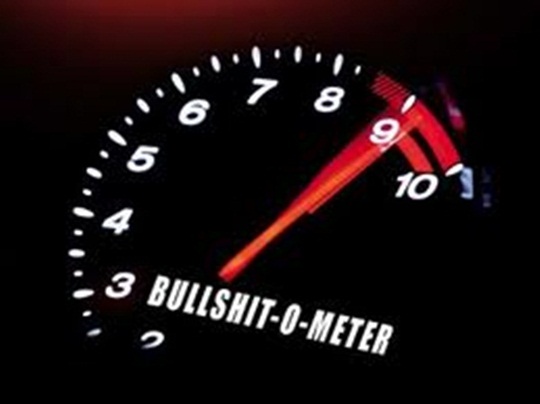
When Plant Positive speaks, this thing is guaranteed to red-line.
I’ve previously addressed some of Plant Positive’s unprovoked antagonism and blatant dishonesty in this post, where I proceeded to label him “Pee Pee” due to his intellectual dwarfism and malevolent, effeminate nature. After penning the article, I promptly forgot about this truth-hating Soy Boy and went back to focusing on far more important and profound activities, you know, like memorising even more Teenage Bottlerocket songs.
Because no excuse for playing a Teenage Bottlerocket song is too weak.
However, recently I received this email from a reader:
Benji writes:
Hello Anthony,
I read your latest blog entry on Don Matesz, hilarious and thoroughly entertaining as usual.
Although you did say “…and if Don disagrees, he’s more than welcome to provide a science-backed rebuttal of each and every point I raise in the article.” You may or may not know that somebody has already done that, it’s a Youtube video available here:
http://www.youtube.com/watch?v=FXV4MEO5s_E.
Just giving you a heads up.
Benji.
No sooner had I received Benji’s email about Pee Pee’s video, I got another one from a bloke called Richard Arppe. I’ve reprinted his correspondence below so you can gain some idea of the intellectual prowess possessed by the kind of people who takes Pee Pee seriously:
Richard Arppe writes:
Hey Colpo,
ín regards to your Don Matesz diatribe, PlantPositive has already replied to you in great detail, in a form of 10 videos. Quite impressive.
Videos 10-22. Check also “the futility of cholesterol denialism”, videos 2-4 of the new serie. Plantpositive also covers your article published which you published in a “scientific journal”.
http://www.youtube.com/playlist?list=PLDBBB98ACA18EF67C&feature=plcp
Enjoy also this fresh, top-notch genetic release:
“Lifelong reductions in LDL linked to consistent reduction in CHD risk” (2012)
http://www.endocrinetoday.com/view.aspx?rid=95991
Cheers
Richard Arppe
To which yours truly replied:
Hey Richard,
I’ll be destroying the cowardly Pee Pee’s nonsense shortly.
Have a humdinger day,
Anthony.
Not content to wait, Mr Arppe promptly replied with this self-assured display of barely coherent hogwash:
Okay,
just pay attention this his work this time. I rather not see accusations of him neglecting Masai and Oakland hospital cases. His response to you did not just cover the two videos titled “response to Anthony Colpo” but the whole “response serie”, atleast from the video 10 and onward is pretty much dedicated to you. Pay attention to them.
Good day to you as well.
Richard
Oh, ps. I came to this diet business with fresh mind, but so far I am not really convinced by the “cholesterol is bogus” -argument, pretty much due to a reasons like these:
2011-02-18 William Castelli MD Heart Disease Risk, Cholesterol and Lipids in 2011: What Do We Really Know?
“You know, we know that if I can get your total cholesterol down around let’s say 100 to 130 or so, and I have maybe not quite a billion people on the earth like that, and those people cannot get atherosclerosis. You know in the China Study, for example, when Chou En-lai was dying of cancer he started a study in China just like the Framingham Study. The only difference was it was in 880,000,000 people so it was a little larger than the Framingham Study. But you know they found these villages in China where you couldn’t get a heart attack or you couldn’t get diabetes and the women couldn’t get breast cancer and you know their total cholesterol were 127, but the chances we could ever get Americans down that low with diet and exercise are not good”.
William Clifford Roberts the one you recited has pretty much made it clear that with total serum cholesterol under 150mg/dl one is bullet-proof against heart-disease. And he refers to long-term digits, prior to the statin treatment and the kind of cholesterol lowering that is induced by cancer and other diseases. Most people cannot reach these numbers without significantly cutting foods of animal origins.
My response to this galactic display of ignorance?
Richard,
let me state this in no uncertain terms – Pee Pee is a shameless pseudoscientist, a rather sleazy one who hides behind the veil of anonymity while he makes sarcastic and unfounded accusations about the scientific validity of other people’s arguments. I have no idea what his true agenda is, but I can assure you he’s full of shit.
Your claim that with total serum cholesterol under 150 mg/dl one is bullet-proof against heart-disease is utter rubbish. It indicates a terribly sad knowledge of the literature, and is a glowing testimony of why people like you need to start looking at the literature yourself instead of mindlessly accepting the lies of screwballs like Pee Pee.
First of all, repeated autopsy studies have failed to find a correlation between serum cholesterol and degree of atherosclerosis. Here’s one you can access freely:
http://circ.ahajournals.org/content/23/6/847.full.pdf
Note the preponderance of cholesterol levels under 150, and note the authors conclusion that, after adjusting for age, “No correlation could be observed between the serum cholesterol level and the amount and severity of atheroselerosis in the arteries.”
Here’s another study I bet Pee Pee hasn’t told you about:
http://circ.ahajournals.org/content/27/2/229.full.pdf
The Canadian researchers again performed autopsies, and felt compelled to make special mention of one specimen who “Over a 9-year period, this man consistently showed a serum cholesterol level of less than 145 mg. per cent. The mean level was 111 mg. per cent. In our experience this is an extraordinarily low value; nevertheless, a severe grade of coronary sclerosis was demonstrated at autopsy, there were large amounts of lipid in his arteries (the third highest recovery in the series) and a heavy deposit of calcium (the third greatest ill the series). He also had a cardiac infarct.”
So tell me again how a cholesterol level under 150 mg/dl guarantees immunity against heart disease?
This reminds me of a rather not-so-humorous anecdote by a doctor I’ve cited in TGCC. Richard, if you mosey on over to Amazon, grab yourself a copy of Heart Frauds
Ironically, this very low cholesterol reading automatically prompted the pathology lab’s computer to print out:
“THIS PATIENT IS AT VERY LOW RISK FOR ATHEROSCLEROSIS”
Hmmm, I guess the jokers who ran that pathology lab obtained their knowledge of CHD risk from the same nonsensical William Castelli quote as you. Speaking of which:
“But you know they found these villages in China where you couldn’t get a heart attack or you couldn’t get diabetes and the women couldn’t get breast cancer and you know their total cholesterol were 127, but the chances we could ever get Americans down that low with diet and exercise are not good”.
And why on Earth would Americans ever want to get their cholesterol levels down to 127? Reality check: the Chinese had a poorer life expectancy than the Americans. Even today, the Chinese lag behind citizens of the USA by five years in life expectancy. And they lag even further behind countries like Australia, Italy, Germany, New Zealand, Switzerland, Sweden, etc, as a simple Google search will readily confirm. So why exactly should we hold up the Chinese as a shining example of good health, and strive to emulate their allegedly super-low cholesterol levels, when their life expectancy ranks behind other countries with higher mean serum cholesterol levels?
You know why people with low cholesterol have a lower risk of coronary heart disease, Mr Arppe?
Because study after study has shown that people with low cholesterol levels tend to die prematurely from other causes, most notably cancer, gastrointestinal diseases, and violent causes.
I’ll repeat that one more time: on average, people with low cholesterol levels die earlier, from other causes.
They have a lower rate of CHD mortality because other diseases and violent causes kill them off first!
If you’d read my book The Great Cholesterol Con, you would already know all this, but instead you’ve read a transcript by prominent proponent of the anti-cholesterol fantasy, William Castelli, and watched a bunch of Youtube videos by some dishonest weasel, and now think you know the score about cholesterol. The reality is you are terribly ignorant on the matter.
Like I said, I will destroy Pee Pee’s nonsense shortly. In the meantime, you may like to ponder how you came to be so woefully gullible, and why you really need to review your knowledge acquisition methods; they are currently of appalling quality.
By the way, I never accused Pee Pee of ignoring any Masai or Oakland studies, so whatever you’re smoking, stop it.
As for your “fresh, top-notch genetic release” – did you even read it? It’s essentially an (unpublished) exercise in speculation based on assumptions about genetic variants, not a clinical trial or even a prospective study examining actual LDL levels and CHD incidence and mortality:
http://www.endocrinetoday.com/view.aspx?rid=95991
Good on ya Richard!
Regards,
Anthony.
What to do when your friends become vegan
Poor Richard. It’s folks like him that form the highly gullible prey of charlatans like Plant Positive. He’s probably too far gone to save, but for those of you still in possession of your rational faculties, let’s take a closer look at Plant Positive’s nonsense.
Before we get started, be sure – if you haven’t already done so – to read my previous reply to Plant Positive’s bald-faced lies:
http://anthonycolpo.com/?p=2719
As you’re about to learn, Plant Positive, aka PrimitiveNutrition, aka Pee Pee hasn’t even begun to change his deluded behaviour. To the contrary, his campaign against reality – and yours truly – seems to have kicked into overdrive.
So let’s turn our attention to the video Benji links to and dissect Pee Pee’s fraudulent attack on my JPANDS paper, in which the very weasel utterly incapable of anything other than posting fraudulent Youtube clips snidely belittles as “Mr. Colpo’s attempt at a serious journal article.”
Pee Pee, like our old buddy Dr Michael Eades, dramatically overestimates both his power of scientific analysis and his ability to refute his opponent’s arguments to the point of complete delusion. Feast your eyes upon the highly misplaced arrogance evident in the comments’ section when a viewer asks Pee Pee if I’ve posted a reply to his nonsense, to which Pee Pee replies:
“I haven’t seen a response and I don’t anticipate one.”
Plant Positive
I guess Pee Pee’s powers of prediction are every bit as appalling as his powers of scientific analysis. Today Pee Pee’s going to get a response…and then some.
So let’s put on our anti-ponce thinking caps (you’ll only need the economical lightweight version, Pee Pee ain’t no intellectual heavyweight), click the Youtube video, and start our journey into the deep, dark, deluded world of anonymous vegan fraudster, Plant Positive/PrimitiveNutrition/Pee Pee.
As the video starts rolling, Pee Pee begins with a series of ad hominem snipes at both JPANDS itself and yours truly, while slipping in a few jibes in defence of drug companies. In his dopey, pansified voice Pee Pee cocksuredly accuses me of displaying “scrambled thinking”, an accusation every bit as ironic as Kim Kardashian calling someone an attention-seeking skank.
In fact, in both this and his previous video I addressed, Pee Pee employs an extremely condescending tone and repeatedly uses sniveling little cheap shots to attack yours truly. Clearly, our anonymous hero isn’t happy simply to launch a barrage of fantasy-based attacks upon my writings. Nope, he has to attack me personally, even though I’d previously never even heard of this joker let alone attacked him in any way.
As is all too often the case, the truth is an unbearable burden on the compromised cognitive faculties of folks like Pee Pee, which in turn causes them to lash out and personally attack the source of this discomforting information.
I won’t dwell on Pee Pee’s sniveling little insults, except to point out that, despite no prior contact or provocation on my part, the guy really does seem to have developed an enduring hard-on for me. With reportedly a dozen or so videos dedicated to me, the guy clearly harbours a rather unhealthy obsession.
While on one hand I’m delighted I’ve gotten so deeply under the skin of someone who is such a highly dogmatic and dishonest purveyor of anti-cholesterol vegan dogma, I do find his obsessive behaviour somewhat disturbing.
I’m guessing Denise Minger feels much the same way. A quick scan of the Youtube thumbnails to the right of the main video shows she’s also the subject of much undue attention from this vegan oddball. That Pee Pee goes to such great lengths to attack Denise and yours truly reveals that he clearly finds us to be the most threatening critics of vegan hogwash.
What’s the matter Pee Pee? Perhaps you know deep down inside our arguments are annoyingly sound and you seek to quell the rising sense of cognitive dissonance by externalizing your anger at us. You know Pee Pee, the sensible thing to do in that case would be to simply acknowledge the overwhelming evidence that both veganism and the cholesterol hypothesis of coronary heart disease are massive wanks…but I guess you’re far too invested in those belief systems to ever do that, huh?
Or perhaps you’re acting as a shill for an organization with a vested agenda, something we will consider again later in this post?
That Pee Pee is an individual of rather dubious nature is clear, so let’s turn our attention from matters of character to matters of science, or should I say pseudoscience. Like most purveyors of health and dietary disinformation, Pee Pee relies on super-sized helpings of pretend-science to dupe his audience. In fact, one of the main reasons I want to address Pee Pee’s video is because it will provide readers with a sterling education in the use of both logical fallacies and straight-out bullshit.
Pee Pee claims at the beginning of the video:
“It would take too long for me to comment on everything in his article, in addition to his blog post about me, so I’ll just make some general observations.”
This line is a popular evasive tactic used by bullshitters of all stripes. In Pee Pee’s case, this statement is code for “Colpo’s presented a lot of evidence that I can’t refute, so instead I’ll pretend I don’t have time to debunk it all, even though I do indeed have the time to post a dozen bullshit-filled videos about him on Youtube. What I’ll do instead is focus on a select portion of what he’s written, and I’ll cherry-pick and distort the evidence to make it look like I can refute this small portion. My viewers – really dopey sods like Richard Arppe – will be none the wiser!”
Pee Pee refutes my assertion that the anti-cholesterol campaign has been a massive time-wasting wank by pointing out that CHD deaths have decreased over the years. Then, in that annoyingly poncey voice, chorts “Well, I don’t know Mr Colpo…fewer deaths…that sounds like a public health benefit to me.”
Ladies and Gentlemen, witness Pee Pee’s use of the false dichotomy. This is where you are presented with two false choices, and persuaded to choose the one the presenter wants you to. In this case, Pee Pee would have you believe the only 2 possible arguments are:
1) There was no public health benefit;
2) There was a public health benefit, in the form of lowered CHD deaths, and it was due to cholesterol-lowering.
Both choices are wrong. The truth is there was a lowering of CHD deaths since the 1950s, but it had nothing to do with cholesterol-lowering. Those of you who have read The Great Cholesterol Con will know that, unlike Pee Pee, I gathered up all the US Government’s heart disease mortality data for the period 1900-1998 (the latter being the most recent data available as of 2006 when the book was published). When I plotted this data on a graph, it showed CHD deaths rose in the first half of the century then peaked around 1950 before beginning a steady decline.
In other words, CHD deaths began declining before the war on cholesterol even began. In 1950, Ancel Keys had yet to pen his first ‘pioneering’ paper (1953) claiming a link between fat and CHD, and it was not until the early 1960s, when he wormed his way onto the AHA Nutrition Advisory panel, that the campaign against fat and cholesterol kicked off in earnest. So the decline in CHD deaths began over a decade before the anti-cholesterol campaign got underway.
The Reduction in CHD Incidence that Never Was
As I explain in The Great Cholesterol Con, the real reason for the decline in CHD deaths was rapidly improving emergency medical care of heart attack victims. The actual incidence of CHD did not decline during this same period, completely putting lie to the claim that cholesterol-lowering was preventing heart disease.
So why the oft-repeated claim, so readily accepted by reality-hating twats like Pee Pee, that the establishment-led campaign against cholesterol was responsible for the decline?
“Our philosophy was that to get more money from politicians, we had to show that good things were happening”.
The author of those words, reprinted in a 1996 Wall Street Journal article, was none other than the then newly-appointed president of the AHA, Jan L. Breslow.
So that you know I’m not quoting anyone out of context, like our sleazy buddy Pee Pee does when it helps his case, here’s the full article:
—
Deaths From Heart-Disease Are Occurring Later in Life
Wall Street Journal of November 13, 1996
By JERRY E. BISHOP
Staff Reporter of THE WALL STREET JOURNAL
NEW ORLEANS — Americans have been seriously misled into thinking that heart disease is on the decline, the new president of the American Heart Association charged.
Deaths from heart disease haven’t dropped nearly as much as health officials have claimed and the prevalence of the disease actually may be increasing, asserted President Jan L. Breslow, a Rockefeller University researcher, at the heart group’s annual meeting here.
Dr. Breslow said that for several years public-health officials and groups like the heart association have pointed proudly to a widely used chart that shows the death rate from heart disease has fallen to about 150 deaths per year per 100,000 people, about half of the peak rate in the early 1950s. Dr. Breslow said that the number of deaths is actually 260 to 270 a year.
Chart Reflects 1940 Death Rate
The original chart was used to support claims that the massive public-health campaigns to get Americans to reduce their risk of heart disease have been paying off. These campaigns urged people to reduce their dietary fat, lower blood-cholesterol levels, stop smoking, reduce blood pressure and lose weight. “Our philosophy was that to get more money from politicians, we had to show that good things were happening,” Dr. Breslow said.
The researchers explained that the older chart showed the so-called age-adjusted death rate reflecting the death rate for each age group in the population. The older chart is based on the U.S. population in 1940, when the proportion of Americans over age 65 was relatively small.
Thus, the older chart gives heavy weight to a decline in heart-disease deaths among 40-to-60 year-olds. But it gives very little weight to increases in the death rates among the older groups where most heart-disease deaths are occurring, the researchers said.
Heart Disease at a Later Age
The researchers said that deaths from heart disease, instead of declining, are only being postponed to later ages. This postponement is the real result of the efforts by Americans to reduce their risk of heart disease with low-fat diets, quitting smoking, blood-pressure control and weight loss. Improved care of people who have heart attacks also has helped push deaths to a later age.
“The actual overall number of cardiovascular deaths is 60% higher than it was 30 years ago, despite a 60% decline in the age-adjusted death rate,” added Australian cardiologist David Kelly of the University of Sydney. Today, “80% of coronary deaths are in the over-65 group,” Dr. Kelly said.
Dr. Kelly said that when the “baby-boom” population begins to move into the over-65 age group, in about 2010, “they’ll have a high incidence of coronary heart disease and there’s going to be a huge increase in the need for medical care.”
Dr. Breslow said the strategy of pointing to successes against heart disease to coax more money for research, “although plausible as a strategy, … has backfired.” The proportion of funds from of the National Institutes of Health going to heart and vascular disease has dropped by 5% to $669 million since 1985.
Copyright © 1997 Dow Jones & Company, Inc. All Rights Reserved.
—
So here we have a surprisingly candid admission by the then head of one of the world’s biggest anti-cholesterol organizations that he and his colleagues had been customizing the facts about the true cause of the decline in CHD deaths, so they could get their grubby little hands on even more taxpayer money.
So what, then, are we to make of the study that Pee Pee managed to dredge up that observed, after adjustment for the effect of age, a decline in the incidence of coronary disease by 31 percent from 1980–1982 to 1992–1994?
Oh, we can make a few very worthwhile observations, all of which further serve to illustrate Pee Pee’s dishonest nature.
First of all, Pee Pee has cherry-picked a study that only dealt with a short ten year time span that occurred long after the decline in CHD deaths began, thus allowing him to avoid the uncomfortable contradiction I discussed above.
Gee, how ethical of him to hand-pick a single study that appears, at first glance, to support his stance, whilst ignoring a plethora of studies that do not.
Before I discuss those other studies, let’s take a closer look at this one. And bugger this farcical Science-by-Youtube sham; unlike Pee Pee, who simply shows you a screen shot of the abstract, makes an absurd claim, then quickly moves on fully expecting you will never read the study for yourself, I’m happy to do something Pee Pee never does and provide you with a link to the full text of the study:
http://www.nejm.org/doi/pdf/10.1056/NEJM200008243430802
Conducted by lipid hypothesis-friendly researchers, including Stampfer, Hu and Willett, and funded by the NIH – the US Government department that played a key role in establishing widespread acceptance for the cholesterol hypothesis – the paper claimed that “improvement in diet explained a 16 percent decline” in the CHD death rate, a claim that Pee Pee eagerly recites in his video.
Hang on a minute! If changes in diet were partly responsible for the reduction in CHD deaths seen in the USA between 1980-1992, then we’re talking the same dietary changes responsible for the rapid increase in obesity during the same period! After all, during this time period, the average American diet experienced an overall increase in caloric intake, carbohydrate intake (of the refined variety), and fat intake (from unsaturated vegetable fat sources).
Indeed, as you can see if you bother to read the study for yourself, the proportion of participants who were overweight increased during the period of the study.
So what Pee Pee would have you believe is that the fattening Standard American Diet, with its increasing refined carbohydrate and vegetable fat intake, contributed to the decline in CHD deaths. One minute he’s purporting to support “plant-based diets”, the next he’s defending the crap-laden Standard American Diet (SAD)!
You really are one mixed-up tosspot, aren’t you Pee Pee?
But that’s not all. Here’s what Pee Pee deliberately neglects to tell you about the study:
“From 1980 to 1992, the proportion of participants currently smoking declined by 41 percent”
Folks, this is where I’m going to ask you to do a little thinking for yourselves. Tell me, which do you think would realistically explain a reduction in CHD deaths:
1) A crap-laden diet of increasing calorie and refined carbohydrate/vegetable fat intake that caused the participants to become increasingly overweight (which itself is a powerful CHD risk factor), or;
2) A reduction in cigarette smoking, which we know full well promotes heart disease via mechanisms totally unrelated to cholesterol?
Show me someone who inhaled a bunch of noxious gases each day but then claimed it was their cholesterol that caused their heart disease, and I’ll show you a certified idiot.
See No Evil, Hear No Evil…
And what about all those studies Pee Pee ignored? What do they show?
They show that the overall age-adjusted incidence of CHD – including non-fatal disease – remained steady or even increased in the USA and other countries:
In other words, people were having just as many heart attacks as ever, but emergency medical care – especially the use of anti-clotting agents – became increasingly adept at saving their lives:
As the authors of the famous Framingham study wrote in 1990: “Our data indicate that the decline in mortality was primarily the result of improved survival among persons with new cases of cardiovascular disease, rather than the result of a substantial decrease in the incidence of the disease”:
Why didn’t Pee Pee tell you about these studies? Because like every other dogmatic bullshit artist, he shamelessly cherry-picks the evidence that can be distorted to appear supportive of his untenable beliefs, and ignores that which cannot.
The War on Cholesterol Has Been a Massive Failure
What Pee Pee also isn’t too keen to dwell on is the indisputable fact that the war on cholesterol has been a resounding flop. Despite some fifty years of cholesterol- and fat-phobia, heart disease is still the number one killer in America (and stroke is fourth), see http://www.cdc.gov/nchs/fastats/lcod.htm.
Compare this with the war on infectious diseases, which has made massive strides; in 1900, the leading cause of death in America was infection, and average life expectancy was much shorter than what it is now. Improvements in food storage, sanitation, hygiene and medical treatment of infectious ailments are the prime reasons for the significant gains in life expectancy made during the 20th century.
The war on infection was targeted at a real enemy: pathogenic microbes. In contrast, the war on cholesterol was conducted against one of our best friends, a crucial life-giving substance that holds our cells together.
Death by Youtube
And this is where we are faced with a rather disturbing realization about people like Pee Pee. They have the evidence right in front of them that the anti-cholesterol campaign has failed, but instead of calling for a new approach, they insist on more of the same – all the while ridiculing and attacking those who truthfully point out the fallacious and counterproductive nature of the cholesterol sham.
Now if a particular medical approach isn’t working, and millions of people have died and continue to needlessly die as a result, but someone vigorously defends that approach any old how, and campaigns against those who recommend alternative approaches (such as iron reduction, which neatly explains why premenopausal women enjoy such dramatically lower CHD rates than men, and which has produced significant reductions in CHD and cancer mortality in a clinical trial…even though serum ferritin levels did not fully reach the designated targets)…what would you call that person?
Well, if it could be proved that people actually acted on their advice, I believe the legal term would be “accessory to murder”.
No wonder this wackopath refuses to show his face…
So while Pee Pee vigorously dismisses the notion that the only entities who have benefited from the cholesterol sham are vested commercial interests and the researchers and ‘health’ organizations they endow with financial rewards…it’s the plain truth.
Pee Pee Defends Wonderfully Humanitarian and Selfless Big Pharma
Pee Pee leaps to the defence of drug companies whilst calling me a ‘professional’ cholesterol ‘confusionist’. Yep, while drug companies make billions upon billions selling largely useless and toxic cholesterol-lowering drugs like statins and etezimibe, in Pee Pee’s demented world view I’m the one who’s really profiteering from the cholesterol sham via the use of strategically deployed confusion. Yep, I’ve become so rich from my book The Great Cholesterol Con, Pee Pee, I now wear gold-plated gold!
Idiot.
Here’s the reality: Despite its patently false nature, the drug companies continue to profit obscenely from the cholesterol paradigm, with cholesterol-lowering drug sales raking in over $14,000,000,000 per year in the US alone. And statin drugs have been pulling in the billions for over a decade now. They have been a very, very lucrative cash cow for BigPharma. Which would be all fine and dandy if cholesterol really did cause heart disease and these drugs therefore cured it. But lowering cholesterol doesn’t cure diddly – as clinical and observational data show, most people who take statin drugs will proceed to die of heart disease anyway. Granted, given that statins have been repeatedly shown to deplete CoQ10 and clinically documented to impair heart function, more of them may die of heart failure instead of coronary heart disease, but at the end of the day, a heart attack is a heart attack.
Drug companies are undoubtedly the biggest beneficiaries of the cholesterol fraud, but they are hardly the only ones and certainly weren’t the first. That dubious honour goes to the manufacturers of vegetable oils, who were quick to realize the goldmine awaiting them if they ‘educated’ the public about the cholesterol-lowering ‘benefits’ of their wares. Early lipid researchers received funding from vegetable oil manufacturers, who then advertised their products in medical journals and bought “Heart Checks” and “Heart Ticks” from ‘respected’ organizations such as the American Heart Association and Australia’s National Heart Foundation.
In fact, just the other day I was in Foodland, and as I walked past the bottled oil section I noticed a NHF Heart Tick on a bottle of vegetable oil. I grabbed it, checked the label, and saw that it was comprised primarily of soy oil, which is riddled with the omega-6 fat linoleic acid (LA). LA has proven itself a complete failure in lowering cardiovascular mortality in clinical trials, although it does seem to possess a talent for increasing cancer in both animals and humans.
So how did a company manage to get the approval of Australia’s National Heart Foundation for this junk?
They paid for it.
Money talks, truth walks. And that’s pretty much the story of the cholesterol fraud. It survives because it has to, because there’s way too much money, way too much prestige, way too much entrenched dogma, and way too many people who have so heavily vested themselves in the cholesterol belief system that earnestly questioning its veracity is simply not an option.
But getting back to the vegetable oil manufacturers and their highly refined ‘natural’ and ‘heart healthy’ products, which also included the trans fat-laden margarines that were later the subject of much outcry when they were found to increase cancer and CHD risk. The case of margarines, in fact, is especially instructive. Vegetable fats were taken, subject to treatment with extremely high temperatures and exposure to heavy metals in order to solidify them; the resultant smelly grey sludge was then bleached and deodorized and coloured to form a ‘healthy’ replacement for saturated fats that subsequently turned out to be so unhealthy many countries have now either banned or placed limits on the trans fat content of margarines and other foods.
Why did this damaging slop become so widely consumed in the first place?
Because of the cholesterol theory. People became so brainwashed by all the cholesterol alarmism that they shunned perfectly natural animal fats that humans have safely been consuming for millions of years, and turned to totally unnatural Frankenfats instead.
And why did refined vegetable oils, with their excessively high contents of the omega-6 fat linoleic acid that has since been shown to increase cancer – and a host of other ailments – become so widely consumed?
Again, because they lowered cholesterol, and people became so brainwashed by the cholesterol sham that they again had no qualms about avoiding perfectly natural saturated fats and instead embracing refined oils that could not be consumed in nature due to the technology required to extract them from seeds and grains in any meaningful amount.
Pee Pee wants you to believe that all this irrational cholesterol idiocy has benefited public health. I’m sure if we could bring them back from the dead and ask their thoughts, all the folks who died of linoleic-induced tumours would very likely beg to differ.
Are Plaques Simply Full of Lipid, or is Plant PositiveSimplyFull of….?
At around 5.30 in the video, Pee Pee triumphantly presents a single photo of a coronary plaque with lots of lipid in it, as if this is conclusive proof that cholesterol causes heart disease. That’s a little like presenting us with a shot of an accident scene, then pointing at the numerous police and paramedics present and blaming them for the carnage.
Cholesterol is a key component of your cell membranes – without cholesterol, you’d literally collapse into a hairy, salty pile of mush and bones. But the fact that cholesterol may be present in atheromas, not in a causative role, but instead to serve a repair function seems to completely escape Pee Pee’s cholesterol-deprived brain.
Calcium is often a significant component of atherosclerotic plaque – so why aren’t we told to eat low calcium diets? Why doesn’t Pee Pee embark on a war on calcium?
White blood cells of various types are found at the site of atheromas, and are key players in their formation. Why aren’t we told to lower our white blood cell counts? Why doesn’t Pee Pee embark on a war on white blood cells?
The answer to the first of those questions is because association does not equal causation. The answer to the second of those questions is, well, who knows…the guy’s an anonymous screwball!
Pee Pee wanks on and on, and on, about how cholesterol is not water soluble, as if this in itself is proof that cholesterol is atherogenic. Um, since when exactly did water insolubility become a marker for atherogenecity? Vitamins A, D, E and K are water insoluble – is Pee Pee claiming they are atherogenic too?
This, mind you, comes from a guy who accuses me of having “scrambled thinking”…
Getting to the Core of the Matter
Atheromas (advanced plaques) do indeed typically contain a lipid-rich core; contrary to what super-sleaze Pee Pee would have you believe, I never said they didn’t. Again, if you’ve read The Great Cholesterol Con, which Pee Pee clearly hasn’t and clearly doesn’t intend to because his feeble and incurably dogmatic little brain would literally explode under the weight of conflicting information, you’ll know I discuss this.
So let’s take a closer look at these lipids, shall we? When researchers analysed the fatty acid content of advanced atheromas, they found over fifty percent were of the polyunsaturated variety. Thirty percent were monounsaturated, and only twenty percent were saturated! When compared to normal arterial tissue, advanced plaque in the aorta contains a higher proportion of the omega-6 linoleic acid (the overwhelming majority of which is obtained in the diet from plant oils, not animal fats):
http://www.ncbi.nlm.nih.gov/pubmed/8466938
These higher levels of LA in aortic plaque are reflected by similarly elevated levels in the patients’ adipose tissue and blood, indicating a high dietary intake. No such correlation between the fatty acid content of plaque, blood and adipose tissue is observed for saturated fats:
http://www.ncbi.nlm.nih.gov/pubmed/7934543
What’s more, researchers have found that the higher the LA content of atheromas, the greater the likelihood that their fibrous cap will rupture. Plaque rupture, folks, is the instigating factor that triggers a significant portion of heart attacks:
http://atvb.ahajournals.org/content/17/7/1337.long
In other words, omega-6 fat from plant sources is the most dangerous of all.
Go Pee Pee!
LDL Oxidation vs Pee Pee’s Oxidized Brain
Pee Pee really outdoes himself when he turns his attention to the topic of LDL oxidation.
Pee Pee excitedly reports that Joseph Goldstein – a prominent lipid hypothesist who co-authored a pivotal paper that helped really get the LDL sham rolling – does not consider the LDL oxidation theory contradictory to his stock-standard “LDL is bad cholesterol!” theory.
Here we see another of Pee Pee’s logical fallacies, namely the Appeal to Authority.
Authority and prestige are social phenomena, not markers of scientific accuracy. As a quick glance in your daily paper will readily attest, even totally dishonest scumbags routinely achieve positions of very high authority and prestige. Needless to say, in terms of scientific validity, perceived authority doesn’t mean jack if you’re wrong – and as we shall learn, both Goldstein and Pee Pee are dead wrong when it comes to LDL cholesterol.
Striking evidence of this occurs at 8.20, when Pee Pee rolls out yet another whopping big lie, this time claiming that the lower your LDL levels, the less of it will be available for oxidation.
The astonishing thing here is that, in my very paper that Pee Pee is ‘debunking’, I clearly discuss the research showing the “Lower LDL = Lower Oxidized LDL” theory to be completely false. But Pee Pee blatantly ignores it and keeps yapping on like it doesn’t exist. Good old Pee Pee – no act of evasion or intellectual dishonesty is too low for him to stoop to!
Folks, here’s the link to my paper:
http://www.jpands.org/vol10no3/colpo.pdf
Scroll on down to the section subtitled “LDL and Oxidized LDL”, and see for yourself. Check out the studies that Pee Pee has deliberately ignored:
“In animal studies, administration of antioxidant drugs like probucol impairs LDL oxidation and arterial plaque formation, even when there is no change in blood cholesterol levels. In fact, administration of the antioxidant butylated hydroxytoluene (BHT) significantly reduces the degree of atherosclerosis in the aorta of rabbits, even though it raises LDL cholesterol levels.
A similar phenomenon is observed in humans.Among elderly Belgians, higher levels of oxidized LDL were accompanied by a significantly increased risk of heart attack, regardless of total LDL levels.
In Japanese patients undergoing surgery to remove plaque from their carotid arteries, blood levels of oxidized LDL were significantly higher than those measured in healthy controls. Advanced carotid plaques removed from these patients showed far higher levels of oxidized LDL than neighboring sections of artery that were disease-free. Elevated oxidized LDL was also associated with an increased susceptibility of plaque rupture. However, there was no association between oxidized LDL concentrations and total LDL levels”
And then check out the subsequent section titled “Serum LDL vs Antioxidant and Fatty Acid Status“:
“In 1997 Swedish researchers published a comparison of CHD risk factors among men from Vilnius in Lithuania and Linkoping in Sweden. These two groups were selected because the former had a four-fold higher death rate from CHD than the latter. Very little difference in traditional risk factors existed between the two groups, except that the men from CHD-prone Vilnius had lower total and LDL cholesterol levels.
According to common wisdom, the lower total and LDL cholesterol of the Lithuanian men should have placed them at reduced risk of heart disease. When the researchers probed further, they discovered that the men from Vilnius had significantly higher concentrations of oxidized LDL. They also displayed significantly poorer blood levels of important diet-derived antioxidants such as beta carotene, lycopene, and gamma tocopherol (a form of vitamin E). Blood levels of these particular nutrients are largely determined by dietary intake, especially from the consumption of antioxidant-rich fruits, nuts, and vegetables. So while the Lithuanian men had lower LDL levels, they were more prone to the formation of oxidized LDL owing to what appeared to be a poorer intake of antioxidant-rich foods.
This may well have explained their greater susceptibility to cardiovascular disease; in tightly controlled clinical trials, discussed below, individuals randomized to increase their intake of fruits and vegetables have experienced significant reductions in cardiovascular and all-cause mortality.”
Yep, Goldstein might be revered by the anti-cholesterol crowd and even managed to pick up a Nobel Prize along the way for his alleged contributions to humanity (just like war-mongering Henry Kissinger, Shimon Perez, Yasser Arafat and global warming shill Al Gore did)…but he was wrong.
As for Pee Pee, we once again see how he’s not just wrong but unashamedly intellectually dishonest.
Antioxidant status/exposure to pro-oxidants is a far more important determinant of your degree of oxidation; as the published evidence clearly shows, your total LDL levels are irrelevant.
LDL Oxidation: Cause or Effect?
And it should be noted that at this point it’s still a matter of much contention whether LDL oxidation is a cause or a side effect of the atherosclerotic process. LDL may play a causative role, or it may simply be a side effect of the suboptimal antioxidant status which may be the real factor at play.
Which brings us to the study at 8.57 that Pee Pee makes a big fuss about:
http://jn.nutrition.org/content/130/9/2228.full.pdf
Note how the study does not observe overall and CHD death rates, or even the development of atherosclerosis. It simply mentions the amount of LDL oxidation occurring to serum LDL taken from the volunteers placed on different diets and exposed to copper in a petri dish.
That’s a far cry from a study that actually examined the effect of diet on CHD morbidity and mortality in real live humans, isn’t it?
So again, we have another widely used pseudoscience tactic, the old “If you can’t dazzle them with brilliance, baffle ‘em with bullshit!” strategy. A key part of this strategy is focusing on scientific minutiae to distract people away from the bigger picture, and it’s a favourite of lipid hypothesists. They ignore the all-important long-running studies showing their pet theory is nonsense and instead focus on studies examining isolated aspects of lipid metabolism that can be made to appear supportive, and from which they creatively redraw the bigger picture as if the numerous non-supportive clinical trials never occurred.
In this respect, vegans and lipid hypothesists are just like their low-carb brethren. Low-carbers blissfully ignore the decades upon decades’ worth of metabolic ward studies showing no fat loss advantage to isocaloric low-carb diets, and instead focus on isolated petri dish experiments showing insulin to suppress fat oxidation. From this, they created a best-selling fairy tale that carbohydrates prevent fat-burning and that low-carb diets cause greater fat loss at the same caloric intake.
But the fairy tale quickly falls apart when you gather up all the ward studies and examine the results. The lesson? Always keep the big picture in mind, especially when some huckster starts rolling out the data from short-term lab studies involving glass containers rather than longer term studies with actual human beings.
And this, folks, is the big picture when it comes to cholesterol:
- The overwhelming majority of epidemiological studies have repeatedly failed to find any link between saturated fat consumption and heart disease;
- Study after study shows that low cholesterol increases your risk of dying prematurely;
- Trial after trial involving dietary fat or saturated fat restriction has failed to reduce cardiovascular or total mortality, even though the treatment groups experienced lowered cholesterol levels. As you will learn a little later, the most successful CHD dietary intervention trial of all time slashed CHD and overall mortality even though the treatment and control groups exhibited similar cholesterol levels throughout the study;
- Drug-based cholesterol-lowering treatments repeatedly failed to make any dent in cardiovascular or overall mortality until the advent of statin drugs, and even they only exhibit benefits in select groups. Statin drugs exert a host of pleiotropic effects not exerted by earlier drugs such as fibrates (as discussed in my LDL paper, and predictably ignored by Pee Pee because he’s got better things to do with his time…you know, like making more BS-filled videos about me).
Saturated Fat is Really Bad For Your Arteries and it’s Also Really Good For Your Arteries. Got That?
Having said all that, let’s humour Pee Pee for a moment. There’s absolutely no doubting he’s a rabid supporter of the lipid hypothesis. We all know this hypothesis claims not only is LDL atherogenic, but also that HDL is protective and that higher triglyceride and higher LDL:HDL ratios are harmful.
So, keeping that in mind, let’s have a look at Table 2 of the study he wanks on about. It shows that:
- As saturated fat intake decreased, so too did HDL;
- As saturated fat intake decreased, the LDL to HDL ratio increased;
- As saturated fat intake decreased, triglyceride levels increased.
So which is it Pee Pee? Is saturated fat atherogenic, or is it anti-atherogenic? You can’t have it both ways, mate, but that’s exactly what this study shows – by the very tenets of the lipid hypothesis you so blindly worship, this study can be made to support either contention.
You of course, being a shamelessly biased dogmatist, have chosen to interpret the study the way it suits you.
Atta boy!
A Big Fat Misinterpretation
Before I permanently flush this study down the toilet of irrelevance, I would like to point out another glaring discrepancy (well, glaring to anyone with even basic knowledge of fatty acid biochemistry). If you do a Pubmed search for “monounsaturated fat and LDL oxidation”, you’ll note there have been several studies published showing diets enriched in monounsaturated fat reduce LDL oxidation when compared to diets higher in saturated or polyunsaturated fats.
This study, for example, found that “LDL resistance to copper-induced oxidation, expressed as lag time, was highest during the MUFA-rich diet (55.1±7.3 minutes) and lowest during the PUFA(n-3)– (45.3±7 minutes) and SFA- (45.3±6.4 minutes) rich diets.”
This study thus appears to be saying that saturated fat produces exactly the same amount of LDL oxidation as polyunsaturated fats.
In the study that Pee Pee cited, the ratio of polyunsaturated fats to monounsaturated fats in blood increased as saturated fat content of the diets decreased (see Table 2), something that as I will explain shortly would be fully expected to increase LDL oxidation, but the researchers claimed just the opposite.
I do believe the scientific term most commonly deployed by anyone with even the most elemental knowledge about fatty acids in response to these findings would be:
Bullshit.
It is well known among biochemists that saturated fatty acids are the most resistant to oxidative damage. Why? For that, we need to quickly delve into a little biochemistry, so Pee Pee, put down that phallic sex toy made from tofu and listen up.
The Story of Fatty Acids
It goes a little something like this…hit it! Oops, sorry, those Run DMC flashbacks again. The fats we eat are comprised of fatty acids, and every one of these fatty acids contains a chain of carbon atoms.
With the exception of the carbon atoms at either end of the fatty acid chain, each of these carbon atoms has two hydrogen atoms attached to it (the carbon atom at one end has one hydrogen and two oxygen atoms attached, while the carbon atom at the other end has three hydrogens attached).
You still with me, folks? Well done! Except for you Pee Pee…didn’t I tell you to put that goddamn thing away?
OK, so when all of the carbon atoms in a fatty acid, excepting the carbon atoms at each end, are bearing two hydrogen atoms, that fatty acid is referred to as saturated. Animal fats and tropical fats typically contain the greatest proportion of their fat as saturated fatty acids. Coconut oil is the most saturated of all naturally occurring fats, with over 90% saturation, which makes it an ideal cooking oil; thanks to its high saturation, it is far more resistant to oxidative damage from high temperatures.
When a fatty acid contains one or more carbon atoms that are missing one of their hydrogen atoms, then the fatty acid/s in question are termed unsaturated fatty acids. Those carbon atoms possessing a solo hydrogen atom are referred to as double bonds. It is these double bonds that attract free radicals and render unsaturated fatty acids far more vulnerable to oxidative damage than saturated fatty acids.
Just think of these double bonds as desperate unattached singles that are way past their prime and haven’t had any nookie for a while, and are hence open to the amorous approaches of even the most repulsive and aesthetically challenged suitors (electrons).
Viewed in that light, saturated fats and monounsaturated fats are the studs that generally pull high quality and less troublesome sheilas, while polyunsaturated fatty acids are the losers that, if not kept on a tight leash, will get drunk, hook up with drug-addicted strippers, then wake up the next morning to find their wallet and car keys missing. They make friends with the dregs of society and bring them back to your place, so that one day you come home to find your house trashed and overrun with skanky sheilas and tattooed blokes who look like beefier, beer-gutted versions of Willy Nelson wearing leather vests that read “FREE RADICALS M.C. – Born to Oxidize”.
You see, polyunsaturated fatty acids contain two or more double bonds, and hence are the most susceptible of all fats to free radical damage. Because monounsaturated fatty acids each contain only one double bond, they are much less prone to oxidative damage than polyunsaturated fats. And saturated fatty acids, which are completely free of vulnerable double bonds, are the most resistant of all to free radical damage. Yep, saturated fats are the tall, dark, handsome and big strong silent types of the fatty acid world, the ones slowly sipping on their Frangelico while remarking, “Mate, I wouldn’t touch that with a barge pole…”
So…let’s return to the experiments claiming saturated fat causes just as much LDL oxidation as oxidation-prone polyunsaturated fats. They seem counter-intuitive…at least until you analyse the actual methods used to determine this alleged LDL oxidation.
One way of measuring LDL oxidation is to examine the amount of LDL oxidation that has already occurred in blood taken from real live humans after they have already been exposed to the substance under investigation. If you are a real live human, then this is clearly the most relevant form of measurement to you.
The other way is to expose volunteers to the substance under investigation, then extract blood, then throw it in a petri dish, then expose it to another substance that is known to stimulate free radical production in this unnatural environment, such as copper. This method is clearly of far less relevance to human physiology, because inside the complex biochemical wonder that is the human body, copper is only one of a myriad of factors that can potentially affect someone’s antioxidant status.
But if you look at the methods sections of the paper cited by Pee Pee and the paper I cited above (and the other papers you can find on Pubmed that I was referring to), guess which method they use?
Yup.
So what happens when we look for studies that – instead of unnaturally teasing out oxidation after the fact in a petri dish with a free radical stimulating metal like copper – observed the degree of LDL oxidation that occurred inside the body?
You can probably already guess the answer to that solely by Pee Pee’s complete failure to mention these studies, but let’s check them out anyway.
The first study is http://atvb.ahajournals.org/content/16/11/1347.full
This is where I get to see who’s really paying attention and actually clicking on the links to read the studies. Yessirree, that’s the same study I linked to and quoted from above. Yep, the study used the copper method to induce LDL oxidation, but there’s something else the authors apparently weren’t so keen to emphasize.
As Chris Masterjohn and Stephan Guyenet have already pointed out (and as Pee Pee would hence already know because he also spends a lot of time lurking on their websites for material to distort and misrepresent) the authors also looked directly at LDL oxidation inside their volunteers. And have a looksy at what they found:

Yep, the polyunsaturated-rich diets increased LDL oxidation, while both the mono- and saturate-rich diets showed a significantly and equally lower tendency to trigger LDL oxidation.
That right there completely wipes out the LDL oxidation study that bought Pee Pee to near-orgasm, but because I fully believe in kicking an evil man when he’s down, let’s continue on.
A year later, the same authors conducted a similar study, and again they emphasized in the abstract the reduction in copper-induced LDL oxidation seen after a mono-rich diet when compared to the PUFA and SFA-rich diets.
And again, they kept as quiet as possible about the fact that the polyunsaturated-rich diet increased LDL oxidation in vivo (inside the human body), while both the mono- and saturate-rich diets showed a significantly and equally reduced tendency to trigger LDL oxidation. As with their previous paper, you have to read the study carefully to note the section embedded in the middle of the paper, in the section subtitled “LDL oxidation”, that reads:
“TBARS (expressed as nanomoles per milligram of LDL protein) were determined in freshly isolated LDL. Identical values were observed during the SFA (0.89±0.05) and the MUFA (1.06±0.04) periods, but they were significantly higher during the PUFA n-6 (1.56±0.08) or the PUFA n-3 (1.70±0.07) periods.”
You’ll also note if you carefully read the aforementioned studies that total and LDL blood cholesterol levels increased during the saturated fat diets compared to the MUFA and PUFA diets in both experiments. Yet LDL oxidation was highest on the PUFA diets, with no difference noted between the MUFA and SFA diets.
In other words, we have even more studies deliberately ignored by Pee Pee because they flatly refute his stupidly simplistic and scientifically disproved assertion that lowering LDL leads to reductions in oxidized LDL.
Awright folks, time to bid adieu to Pee Pee’s LDL oxidation scam:
[LOUD FLUSHING SOUND]
Antioxidants Don’t Work?
At around 9.17, Pee Pee argues that your all-important antioxidant status may not be all that important, and moans that studies examining the ability of antioxidant supplements to reduce CHD have produced poor results.
No kidding. If you take a look at these studies, you’d be forgiven for wondering if they’d been deliberately set up to fail.
Most of them involved large doses of only 1 or 2 antioxidants, such as alpha-tocopherol or beta carotene. Sorry Pee Pee, but that’s not how nature works, mate. In nature, a wide array of nutrients work together in carefully orchestrated synergy to keep the human body humming along. And that’s the way it’s worked for, you know, two and a half million years or so.
But along come 20th century researchers with their drug-minded single-bullet mentality, who test varying doses of single nutrients against CHD and roundly proclaim antioxidants a failure when their studies return negative results.
What happens when researchers ditch this simple-minded outlook and test a variety of nutrients together in the one study? The one major trial that used a broad spectrum formula was SUVIMAX, a randomized, double-blind, placebo-controlled French project involving over 13,000 healthy adults aged 35-60. The participants took a single daily capsule containing 120 milligrams of ascorbic acid, 30 milligrams of vitamin E, 6 milligrams of beta carotene, 100 µg of selenium, and 20 milligrams of zinc, or a placebo. After 7.5 years of supplementation, cancer and overall mortality rates in men were significantly reduced, by thirty-one and thirty-seven percent, respectively.
Ah, but what about the female participants, you ask?
Their mortality was not significantly lowered.
Why not?
Because their blood antioxidant status at the start of the study was higher on average than the men’s (again, most likely due to the lower pro-oxidant burden posed by their lower bodily iron stores, which corresponds with their lower CHD death rate), so they didn’t have as much to gain from the antioxidant formula.
Tell us again how antioxidant status isn’t that important, Pee Pee?
By the way, I would like to posit that if other key nutrients such as CoQ10 and magnesium had been included in the SUVIMAX intervention, the beneficial findings would have been even stronger.
Gamma Gamma Hey!
One more thing I’d like to point out about the antioxidant supplement studies. Perhaps the most widely studied antioxidant nutrient is alpha-tocopherol, a vitamin E ester that constitutes only one of the many vitamin E tocopherols and tocotrienols occurring in nature. For some reason (I’m guessing cost considerations) alpha-tocopherol is the form of vitamin E most commonly found in supplements, but in natural foods gamma-tocopherol is actually the most abundant form of vitamin E. Administration of over 400IU daily of alpha-tocopherol has been shown in some studies to actually lower levels of the more potent antioxidant gamma tocopherol, which is not a very encouraging development.
But despite these concerns, and despite the fact that several trials already found alpha-tocopherol to be ineffective in reducing CHD morbidity or mortality, researchers kept on studying it in clinical trials anyhow. Meanwhile, we still don’t have a single RCT that has examined the effect of gamma tocopherol on CHD incidence and mortality. Folks, this is why you’ve got to start demanding more accountability from your elected representatives and the way they spend your extortion dues…uh, I mean, tax money. Why do researchers keep getting taxpayer funds to conduct studies confirming what we already know about alpha-tocopherol, when there are critical questions waiting to be answered about gamma-tocopherol?
More Antioxidant Flim Flam: Uric Acid
At around 10 minutes into the video, Pee Pee ramps up the pseudo-intellectual masturbation even further and really starts pouring on the dodgey extrapolations when he talks about uric acid.
Pee Pee’s reasoning goes like this:
- Anthony Colpo supports the antioxidant theory;
- Uric acid is an antioxidant;
- High levels of uric acid are harmful;
- Therefore Colpo supports the harmful strategy of raising uric acid levels.
Again, I have to say it: Pee Pee, your idiocy is absolutely epic.
Pee Pee asks “What foods elevate uric acid? The same ones that contribute advanced glycation end products…”
I’m so glad Pee Pee brought up advanced glycation end products, also known as AGEs, because research shows they are higher in vegetarians and vegans than in omnivores. When researchers from Germany and Slovakia compared vegetarians, vegans and meat-eating omnivores, the latter had significantly lower levels of nasty-ass AGEs circulating in their bloodstreams:
AGEs are known to be accelerated by high refined carbohydrate intakes and sky-high levels of glycation are seen in diabetics. However, in this study, the difference could not be explained by total carbohydrate intake, blood sugar, age or kidney function, as all these variables were similar between the vegetarian and omnivorous groups.
So, why then, would meat eaters show lower levels of AGEs? Because they eat meat. Animal flesh, especially chicken, pork and red meat, is the only appreciable source of carnosine[1].
Emerging research suggests this novel amino acid may accelerate wound healing, boost the immune system, rid the body of toxic metals, and even help fight against cancer[2].
Carnosine is a potent antioxidant and is shaping up as an especially effective agent against glycation (aka glycosylation), the harmful process that is accelerated by high blood sugar levels and results in the production of AGEs. In laboratory studies, carnosine exhibits a far stronger ability to prevent glycative damage than the more widely studied anti-glycation compound, aminoguanidine[3-5].
Keep digging your hole deeper and deeper, Pee Pee!
Endogenous Shmogenous
In fact, let me give you a hand. Like any try-hard that’s just learned a new big word, you make much ado about the term “endogenous”. You erroneously claim that endogenous antioxidants cannot be obtained by outside sources such as food, which is utter nonsense. You also claim uric acid is “by far” the most important antioxidant in the human body, which again is bollocks. In fact, as you spew out your anti-antioxidant diatribe, you’d clearly have us believe uric acid was the only endogenous antioxidant of note.
I guess you’ve never heard of glutathione, widely considered the most important antioxidant within the body. Or maybe you have, but neglected to mention it because it didn’t suit your shamelessly biased agenda to do so.
You also ignored a whole raft of critical endogenous antioxidants such as alpha lipoic acid (ALA), superoxide dismutase (SOD), catalase, and coenzyme Q10 (CoQ10). You also conveniently omitted the fact that the endogenous antioxidants ALA, carnosine and CoQ10 are indeed available in the diet, with red meat being the richest source of ALA and beef/pork/chicken heart, and sardines/mackerel/herring constituting the richest whole food sources of CoQ10.
I guess another reason you don’t want to mention CoQ10 is the uncomfortable fact that your beloved statin cholesterol-lowering drugs do an outstanding job of depleting the body’s stores of this critical nutrient.
Association Does Not Equal Causation
Pee Pee then notes that uric acid is often seen in people with heart disease and metabolic syndrome, and then goes on to cite organ meats, chicken breast, lean meats, and fish as foods that raise uric acid.
Here we see Pee Pee once again use the false dichotomy.
Pee Pee’s claiming animal foods cause elevated uric acid, and that this elevated uric acid in turn causes heart disease.
Not only is this a false assumption, but it employs a level of simplistic thinking that borders on the moronic.
Firstly, Pee Pee makes the same mistake he does with cholesterol, and erroneously assumes association and causation are the same thing. That association does not equal causation is the first thing students should be taught in any science-related course, but I’m starting to suspect the only schooling Pee Pee has ever completed is an advanced degree in Making Shit Up at the Vegan Institute of Reality Evasion. As Swiss researchers emphasized in a 2004 paper:
“The positive association between serum uric acid and cardiovascular diseases such as stroke or ischemic heart disease has been recognized since the 1950s and has been confirmed by numerous epidemiological studies since then [1-7]. However, whether uric acid is an independent risk factor for cardiovascular mortality is still disputed as several studies have suggested that hyperuricemia is merely associated with cardiovascular diseases because of confounding factors such as obesity, dyslipidemia, hypertension, use of diuretics and insulin resistance [8-10]. Moreover, there is still no well-established pathophysiological link between hyperuricemia and the development of cardiovascular complications.”
Finnish researchers wrote as much in 2009:
“Cardiovascular mortality was not higher in hyperuricemics than in normouricemics…A rise of serum uric acid may be secondary to more advanced atherosclerosis. Thus, hyperuricemia may be associated with more advanced heart disease and it is not an independent cause of cardiovascular diseases.”
Strike 1 for Pee Pee’s Uric Acid Hypothesis!
The second key point is that, as an explanation for the widespread prevalence of cardiovascular disease, uric acid is a poor one. The incidence of hyperuricemia was 2% in the US in the 1960s, now it’s at 3.9% – almost double[6,7].
So here we have yet another amusing example of Pee Pee shooting himself in the foot with self-contradictory claims. Remember Pee Pee’s insistence that CHD incidence has been declining over the years, and that dietary factors played a role in this decline? Again, you can’t have it both ways Pee Pee…if uric acid is bad for your heart and its prevalence is increasing, and is caused by dietary factors, why is cardiovascular disease incidence allegedly decreasing…and how on Earth can you ascribe this decrease to dietary factors?
Because you’re a world class dimwit, I guess.
Now let’s leave the US for a moment and jump on over to the land of duck liver pates, berets, and those funny-looking Citroens with the roll-top roofs: France. A French report from 1988 reported a hyperuricemia prevalence of 17% in males 22-44, and an incidence of gout that was 3 times higher than that seen among US men by researchers using similar criteria[8].
So French men have a much higher incidence of hyperuricemia than their US counterparts but a much lower rate of heart disease. Oh, and need I mention that the French eat more saturated fat than the Americans?
Strike 2 for Pee Pee’s shambolic uric acid theory!
The third point worth noting is Pee Pee’s use of another favourite bullshitter tactic; namely, the irrelevant extrapolating from people with rare or highly specific health conditions to the general population. We see this in the cholesterol hypothesists with their use of familial hypercholesterolemia to argue that high cholesterol causes heart disease in normal people, and we see it in the citation of Type 1 diabetics by the low-carb shills to support their insulin-makes-you-fat theory and recommend carbohydrate restriction to the general population. Both cases are sterling examples of anti-scientific conclusion-jumping.
As evinced by the low incidence of hyperuricemia in the general population and the millions upon millions of people around the world who eat meat and suffer no issues with elevated serum uric acid, healthy people do not develop hyperuricemia simply from eating meat. And we’ve had clinical validation of this as far back as 1915, when Denis wrote:
“From the results given in Table I it is evident that in normal individuals it is possible to feed large amounts of purine-containing food without increasing the uric acid content of the blood…It is possible that, in a large series of less carefully selected “normal” material a few individuals might be found whose tissues and kidneys might be unable to cope with the large amount of purines ingested and who would under the same experimental conditions be found to have an increase in the circulating uric acid.”
In other words, high purine diets may indeed cause chronically and pathologically elevated uric acid levels, but only in those with genetically susceptible or damaged kidneys, as Denis noted in another paper:
“In normal men no increase in the circulating uric acid is produced by the ingestion of large quantities of purines. In persons suffering from renal insufficiency a more or less marked increase in the uric acid content of the blood is produced by high purine feeding. “
Pee Pee’s uric acid argument is a non-argument, yet another smokescreen designed to distract you from the bigger picture, which is the fact that vegetarian and vegan diets offer no protection against heart disease and do not extend mortality by a single day (more on that in a moment).
Strike 3 for Pee Pee’s wankabolic uric acid argument…Soy Boy, you’re o-u-t!
As we proceed to boot Pee Pee and his stupendously stupid uric acid argument off the field, did you notice the way our slimy purveyor of whole food hogwash slipped in the phrase about “Weston A Price” recommended foods? What on Earth do I have to do with WAP, apart from nothing? I’m not a WAP member, am not associated with them in anyway, and you can be rest assured they in no way speak for me. I thought this clown was supposed to be critiquing my paper, so what’s with the WAP mention? Oh, wait a minute, Pee Pee’s using the favourite BS tactic of denigration by association.
Keep trying, Pee Pee.
Once You Become a Vegan…You Will Eventually Quit
Pee Pee claims that once you become a “whole food vegan” (read: obnoxious militant asshole sickeningly high on your own self-importance), you will no longer need to consume animal foods. Yep, meat will simply become redundant and you can float through life high on zucchinis, bell peppers and your own overblown sense of moral superiority.
Don’t count on it.
Once we strip away all the science fiction, the reality is that vegetarianism and veganism are essentially fad diets, and most people simply do not stick with fad diets. As I have previously written here, research shows most vegetarians eventually go back to eating meat. A CNN survey found 75% of vegetarians eventually ditch their meatless ways, and when Western Carolina University researchers enquired as to why this would be, they found over a third of participants experienced worsening health after removing meat from their diets.
As one respondent succinctly stated, “I will take a dead cow over anemia any time.”
Pee Pee Gets as High as He Wants on His Own Merde
Pee Pee then whines “Colpo’s belief seems to be that your cholesterol can be as high as you want, as long as you consume enough antioxidants”
Rubbish.
Here we see Pee Pee once again use the perennially popular bullshit artist tactic of putting words in your opponent’s mouth. By claiming an opponent said something they didn’t, or ascribing beliefs to them that they in fact do not hold, the bullshitter can then use this newly created red herring to launch a false attack.
And here we realize one of Pee Pee’s major problems, a self-destructive downfall he shares with all of my other intellectually challenged critics:
The guy earnestly seems to believe I’m even dumber than he is!
He truly appears to believe I’m of the same intellectually challenged calibre, only worse!
As a result, Pee Pee earnestly seems to believe he can get away with lying, creating red herrings and false dichotomies, cherry-picking a small handful of studies that appear to support his untenable beliefs, reading from study abstracts without discussing the actual findings in the full text…the guy even cherry-picks from within studies, citing a portion of a paper, while blatantly ignoring conflicting evidence only a paragraph below. As a wannabe scientific commentator, Pee Pee scores an epic FAIL. But in his own mind, Pee Pee earnestly believes that reading carefully selected sentences from carefully selected abstracts on Pubmed makes him an unassailable Grandmaster of the Scientific Method.
By ascribing a claim to me that I never made, sleazy Pee Pee dishonestly infers I believe antioxidants are the be-all and end-all of heart disease, something that once again anyone who has read The Great Cholesterol Con or even the JPANDS paper would know is utter rubbish.
Pee Pee, pull your head from your encrusted culo and listen closely, for here are my true beliefs on the matter of CHD and cholesterol, as I have clearly expounded so many times before:
1. People should damn well forget about their cholesterol levels and start focusing on the things that really matter. Forget about obsessing over highly questionable risk factors and start focusing on causes.
2. Coronary heart disease is a condition influenced by a myriad of causal factors, including, but not limited to:
- Infection
- Bodily iron stores
- Cardiovascular fitness
- Nutrition
- Fatty acid status (excessive n-6:n-3 ratio imparts increased risk)
- Mineral status, with suboptimal magnesium conferring an especially powerful risk
- Vitamin D status
- Glycemic control and glycosylation
- Stress
- Circadian rhythm and sleep
- Disturbances in nitric oxide metabolism
And yes, without question, antioxidant status.
Hmmm, that’s quite a different looking list than the one Pee Pee presents us with, isn’t it? You know, the one comprised of:
- Colpo says get your cholesterol as high as you want!
- Colpo says lack of antioxidants is the cause of heart disease!
Colpo says Pee Pee is Full of Shit
Pee Pee wants us to believe antioxidants don’t matter after already masturbating incessantly over LDL oxidation which – as the evidence he so wilfully ignores clearly shows – is determined by antioxidant status.
Like I said, this really is one mixed-up sack of excrement we’re dealing with here.
The Best CHD Advice You’ll Ever Get in One Sentence
Folks, stop obsessing over your irrelevant cholesterol levels, and get off your fat asses and start exercising, eat a nutrient-rich diet of fresh meats and plant foods, keep your serum ferritin between 25-75, keep your stress levels as low as possible, don’t smoke, keep alcohol consumption to a minimum, lose weight via sensible diet and exercise if you are overweight, avoid refined sugars, avoid anti-nutrient-ridden whole grain products, run from linoleate-rich vegetable oils and trans fat-laden margarines, keep good sleep hours, utilize judicious supplementation of critically important nutrients including but not limited to magnesium, vitamin D and CoEnzyme Q10.
There ya go folks…in just one sentence, albeit a kinda longish one, I’ve just given you more useful recommendations than Pee Pee and his legion of fellow truth-hating vegan wankers could ever dream of.
We’re Almost There!
Thank goodness – there’s only ninety seconds left of Pee Pee’s video, which means we’re almost done listening to his effeminate voice pumping out line after line of painfully idiotic bullshit. So let’s put our gas masks back on and plough ahead!
At 11.15, Pee Pee claims that “antioxidant supplements have been shown to be harmful in some trials”. I already addressed this above – giving people inordinately large doses of 1 or 2 nutrients, such as alpha tocopherol or beta carotene, whilst ignoring the plethora of other critical nutrients is a strategy destined to disappoint. Whilst mentioning the “some” that found antioxidant supplementation harmful Pee Pee, of course, makes absolutely no mention of the trials that found them to be beneficial.
Get a SUVIMAX up ya, Pee Pee!
At 11.40, Pee Pee actually manages to get something right when he states that “antioxidant power” is only one potential benefit of eating plant foods, but he quickly reverts back to the bollocks when he cites gene expression and cholesterol-lowering as two others.
I’m Dying if I’m Lying About Lyon
Cholesterol reduction is not, and never will be, a mechanism by which increased pant food intake benefits human health. A sterling example of this comes from the Lyon Diet Heart study.
In contrast to the studies involving vegan/vegetarian diets and total fat or saturated fat restriction that have repeatedly flopped, the Lyon Diet Heart study produced whopping reductions in cardiovascular incidence and mortality. The experimental group was advised to eat a Mediterranean-type diet, where consumption of root vegetables, green vegetables, fish and bread were to be increased, and poultry was to be eaten at the expense of beef, lamb and pork. Experimental subjects were instructed to eat fruit daily, and advised to replace butter with olive oil and a canola-based margarine that was higher in monounsaturated and omega-3 fatty acids than regular margarine.
The study was originally intended to follow the patients for four years, but death rates diverged so dramatically early on researchers called an early end to the trial. After an average follow-up of twenty-seven months, CHD and overall mortality in the treatment group were slashed by a massive eighty-one percent and sixty percent, respectively[9].
Now, according to Pee Pee, the lipid hypothesis is the strongest, most logical explanation for the pathology of heart disease. But, as we’ve all realized by now, Pee Pee is a tool.
In the Lyon Diet Heart Study – the most successful cardiovascular dietary intervention study ever – total and LDL blood cholesterol levels of the treatment and control groups were virtually identical throughout the entire study.
What the researchers did find to differ significantly between the experimental and control subjects were significantly higher blood levels of omega-3 fatty acids and reduced concentrations of omega-6 fatty acids in the former. This observation is in accord with the findings of other researchers who have compared heart attack victims with healthy controls and observed higher blood levels of omega-3 and lower levels of omega-6 fatty acids in the latter[10-12]. In controlled clinical research, the administration of omega-3′s from fish oil has produced significant reductions in cardiac mortality[13].
Blood levels of vitamin C and E were also increased in the experimental group. Along with vitamin A, these were the only vitamins measured, but it is not unreasonable to assume the diet raised levels of other important antioxidants supplied in greater quantity by the increased fruit and vegetable intake.
The Lyon Diet Heart Study is important because it underscores the fact that ensuring regular intake of vital fatty acids and crucial antioxidants is far more beneficial than the mindless pursuit of low blood cholesterol levels.
Which unfortunately doesn’t sit too well with the current cholesterol-phobic orthodoxy that controls modern medicine. When the Lyon Study paper was originally submitted to the New England Journal of Medicine for publication, it was rejected because the “intervention induced no changes in serum lipids”. This ‘paradoxical’ finding left the journal’s reviewers, faithful followers of the cholesterol dogma that they were, “wondering how such a large mortality reduction could have possibly been achieved”[14].
This is utterly disgraceful. Wanton reality evasion from some anonymous scientist wannabe on Youtube is one thing, but from the reviewers of one of the world’s most famous and ‘prestigious’ medical journals?!
Shame on them.
Thankfully, the reviewers at the British journal The Lancet were a little more open-minded, and the Lyon Diet Heart Study report was finally published in 1994.
First, Do No Harm. Second, Laugh Your Ass Off!
At 11.50, Pee Pee serves up another whopper: “Whole plant foods have one enormous advantage over animal foods: they do no harm”.
Excuse me for a moment:

Folks, the claim that animal foods are harmful but whole plant foods are totally innocuous is so monumentally stupid I don’t where to begin. I guess a comparison of whole grains versus refined grains would be a good start; I’ve written in detail why “whole” isn’t always healthier here:
Why “Doctor” Janet Brill, Author of “Cholesterol Down”, is Absolutely Clueless
Again, we see the use of the false dichotomy, clearly a favourite in Pee Pee’s BS arsenal. Pee Pee makes it sound like the only choices are:
- A diet of animal foods
- A vegan diet of plant foods
He omits to provide you with the third choice, the ones that humans have been successfully utilizing for some 2.4 million years:
A perfectly healthy omnivorous diet of animal and plant foods, low or absent in highly processed packaged foods, which mountains of research shows is vastly superior to either of the above choices.
Pee Pee Commits Himself to Gradual Euthanasia via Low Cholesterol
At 12.20, after wanking on some more about LDL and saturated fats, Pee Pee states “I’m not going to accept high LDL in my body just because I’m crossing my fingers hoping that the antioxidant fairy that Anthony Colpo believes in will be my guardian angel.”
Here’s my advice to Pee Pee:
Please, please, please, by all means ignore the antioxidant theory, even though it has far more clinical support than the idiotic and repeatedly disproven cholesterol fairy. Please go ahead and aggressively lower your cholesterol levels as much as possible, because study after study shows that people with low cholesterol levels die earlier.
I know one less vegan liar on the planet isn’t going to bring a sudden end to the mountain of dietary disinformation that exists out there, but in this day and age of shameless dishonesty and stupidity, every small step we can make towards cleaning up the gene pool by eliminating fraudulent dogmatists is a welcome one.
So go ahead Pee Pee, load upon the statins, sitosterols, ezetimibe, red yeast rice extract, policosanol, and whatever other cholesterol-lowering junk you can get your hands on, because as every good little vegan brainwashee knows, you can never get your cholesterol too low!
And Now, the End is Near…For Pee Pee
Well that brings us to the end of Pee Pee’s video, and almost to the end of this article. It’s now time to take the gloves off and deliver Pee Pee the knockout punch, bare knuckle-style.
Pee Pee’s delivery style is heavily centred around evasion. He evades conflicting evidence like it’s some kind of flesh-eating virus, but most importantly, he evades the bigger picture and instead focuses on the minutiae that appear to support what he wants you to believe.
So let’s look at the bigger picture, shall we? Here are the indisputable facts:
–The overwhelming majority of long-term follow-up studies have found no association whatsoever between saturated fat, total fat and cardiovascular disease (Chapter 7 of The Great Cholesterol Con, and also this recent Harvard review that found those “who ate the highest amounts of saturated fat had no greater risk of CVD than those who ate the lowest. Consideration of age, sex, and study quality did not change the results.)
–Trial after trial has found that saturated fat and/or total fat restriction is a complete dud for lowering cardiovascular mortality (Chapter 8 of The Great Cholesterol Con).
Pee Pee and his vegan cohorts incessantly claim that meatless diets protect against heart disease, but the only clinical trials to examine a vegetarian diet versus an omnivorous diet and include mortality data were those by Ornish – and they found bugger all reduction in CHD mortality.
Ornish’s Lifestyle Heart Trial that everyone bangs on about actually showed a higher death rate in the intervention group after five years of follow-up (2 deaths, versus 1 in the control group). Granted, this may have been due to misfortune – according to Ornish, one of the treatment group deaths was in a participant who had stopped following the intervention, while another intervention subject reportedly exceeded his prescribed target heart rate during exercise with fatal consequences[15].
So let’s take a look at the much larger Multicenter Lifestyle Demonstration Project which, interestingly, almost no-one bangs on about. No doubt because it was such a flop. It sought to apply the intervention in Ornish’s original trial to a larger group of patients recruited from clinics across the U.S. Practitioners from eight medical centres around the country were trained in all aspects of the Lifestyle program, which they proceeded to administer to patients with coronary artery disease. The study was not a randomized trial; instead, outcomes in the 194 patients who completed the intervention were compared with 139 patients who did not take part in the Lifestyle program.
After three years, there were no significant differences in cardiac event rates nor mortality between patients in the intervention and control groups. The number of cardiac events per patient year of follow-up when comparing the experimental group with the control group was as follows: 0.012 versus 0.012 for myocardial infarction, 0.014 versus 0.006 for stroke, 0.006 versus 0.012 for non-cardiac deaths, and 0.014 versus 0.012 for cardiac deaths (none of the differences were statistically significant)[16].
If you truly want to protect yourself against heart disease and stroke, you’d sure as hell better avoid falling for the vegan fairy tale that Pee Pee believes in. At best, it’s useless; more likely, it’s harmful as we shall discuss shortly.
–Vegans and vegetarians do not live longer. Before I discuss the research, check out the following passage by researcher and ex- vegetarian William T. Jarvis, Ph.D., professor of public health and preventive medicine at Loma Linda University, founder and president of the National Council Against Health Fraud, and coeditor of The Health Robbers: A Close Look at Quackery in America:
“A perennial assumption among vegetarians is that vegetarianism increases longevity. In the last century, Grahamites —devotees of the Christian “hygienic” philosophy of Sylvester Graham (1794-1851) —taught that adherence to the Garden of Eden lifestyle would eventuate in humankind’s reclamation of the potential for superlongevity, such as that attributed to Adam (930 years) or Methuselah (969 years). I discussed this matter 25 years ago with an [Seventh Day Adventist] physician who was dean of the Loma Linda University (LLU) School of Health. Although he admitted that lifelong SDA vegetarians had not exhibited spectacular longevity, he professed that longevity of the antediluvian sort might become possible over several generations of vegetarianism. SDA periodicals publicize centenarians and often attribute their longevity to the SDA lifestyle. However, of 1200 people who reached the century mark between 1932 and 1952, only four were vegetarians[a]. I continue to ask: Where on Earth is there an exceptionally longevous population of vegetarians? Hindus have practiced vegetarianism for many generations but have not set longevity records. At best, the whole of scientific data from nutrition-related research supports vegetarianism only tentatively. The incidence of colorectal cancer among nonvegetarian Mormons is lower than that of SDAs[b]. A review of populations at low risk for cancer showed that World War I veterans who never smoked had the lowest risk of all[c]. As data accumulate, optimism that diet is a significant factor in cancer appears to be diminishing. An analysis of 13 case-control studies of colorectal cancer and dietary fiber showed that, for the studies with the best research methods, risk estimates for dietary fiber and colorectal cancer were closer to zero[d]. A pooled analysis of studies of fat intake and the risk of breast cancer that included SDA data showed no association[e].
a. O. Segerberg. Living to Be 100: 1200 Who Did and How They Did It. New York: Charles Scribner’s Sons, 1982.
b. J.L. Lyon, M.R. Klauber, J.W. Gardner, and C.R. Smart, “Cancer Incidence in Mormons and Non-Mormons in Utah, 1966-70,” N Engl J Med 1976; 294:129-133 (p.132).
c. J.E. Enstrom. “Cancer Mortality among Low-Risk Populations,” CA — A Cancer Journal for Clinicians 1979; 29:352-61.
d. C.M. Friedenreich, R.F. Brant, and E. Riboli. “Influence of Methodological Factors in a Pooled Analysis of 13 Case-Control Studies of Colorectal Cancer and Dietary Fiber,” Epidemiology 1994; 5:66-79.
e. D.J. Hunter et al. “Cohort Studies of Fat Intake and the Risk of Breast Cancer: Pooled Analysis,” New Engl J Med 1996; 334:356-61.”
Jarvis is correct. Study after study shows that the evidence to support the oft-repeated claim that vegetarianism and veganism extend lifespan simply does not exist. The largest and longest follow-up study comparing vegetarians and non-vegetarians (the EPIC study, with follow-up to 2007 and over 64,000 participants) found no difference in overall mortality between vegetarians and non-vegetarians. Fish eaters and vegetarians had slightly lower rates of coronary heart disease than meat eaters, but higher rates of stroke. Total cancer incidence was significantly lower among fish eaters and borderline significantly lower among vegetarians than among meat eaters. In stark contrast to prevailing anti-meat dogma, the risk of colorectal cancer was significantly higher among vegetarians. For all causes of death combined, mortality in fish eaters was non-significantly lower than in meat eaters, while mortality in vegetarians was non-significantly higher[17].
Keep in mind that vegetarians are well known to have lower rates of overweight and smoking, lower bodily iron stores, and higher participation in exercise. Yet despite these significant advantages, they still exhibit no mortality advantage whatsoever, indicating that something else about their diet (e.g. deficiencies of various key nutrients) and lifestyle (e.g. being a socially retarded loser who spends too much time posting hogwash on Youtube) is countering the benefits of lower iron, overweight, smoking and higher activity levels.
In other words, all things being equal, a vegetarian diet will more than likely shorten your life.
However, there is one health outcome that vegetarianism/veganism consistently outpoint omnivorous diets on, and that’s reduced bone density. Now there’s a reason to give up nature’s most nutrient-dense food!
Not.
As I discussed here, research has consistently shown vegans to have lower bone density than omnivores.
Yeah, Go Vegan, woohoo!
A Former Vegetarian Speaks: Why I Am Not a Vegetarian
Consider the dishonest tactics employed by Pee Pee to make his case for veganism when you read the following quote by Jarvis:
“From a behavioral standpoint, I categorize vegetarians as either pragmatic or ideologic. A pragmatic vegetarian is one whose dietary behavior stems from objective health considerations (e.g., hypercholesterolemia or obesity). Pragmatic vegetarians are rational, rather than emotional, in their approach to making lifestyle decisions. In contrast, vegetarianism is a “matter of principle” for ideologic vegetarians; its appropriateness is a given.
One can spot ideologic vegetarians by their exaggerations of the benefits of vegetarianism, their lack of skepticism, and their failure to recognize (or their glossing over of) the potential risks even of extreme vegetarian diets. Ideologic vegetarians make a pretense of being scientific, but they approach the subject of vegetarianism more like lawyers than scientists. Promoters of vegetarianism gather data selectively and gear their arguments toward discrediting information that is contrary to their dogma. This approach to defending a position is suitable for a debate, but it cannot engender scientific understanding.”
http://www.acsh.org/healthissues/newsid.760/healthissue_detail.asp
For folks like Pee Pee (and a disappointingly large percentage of Internet diet and health commentators, irrespective of their particular brand of dietary sectarianism), appearing right is more important than actually being right. If you can use fancy language, cleverly cited and cherry-picked studies, and other forms of chicanery to give as many people as possible the impression that your opponents are wrong and you are correct, then that’s all that matters. Unfortunately, fraudsters like Pee Pee cannot claim sole responsibility for this unfortunate state of affairs; a good portion of the blame must be shared by those too lazy to think for themselves and therefore stupid and gullible enough to believe the unscientific rot of these hucksters.
But back to Jarvis. Why, exactly, did he give up vegetarianism?
“I gave up vegetarianism because I found that commitment thereto meant surrendering the objectivity that is essential to the personal and professional integrity of a scientist. As a health educator, I feel I have an obligation to endeavor to stick to whatever unvarnished facts scientific research uncovers. I can support pragmatic vegetarianism, but I believe that crusading vegetarian ideologues are dangerous to themselves and to society.”
http://www.acsh.org/healthissues/newsid.760/healthissue_detail.asp
That Pee Pee poses a danger to himself wouldn’t even begin to arouse a micron of sympathy within me; but the thought that dishonest dogmatists like him hold the power to influence and harm others through their fraudulent communications is truly regrettable.
Cowardly, Dishonest Sleazeball of the Year Award! And the Winner is…
Coward by Trillium: Dedicated to Dubious Vegan (and Drug?) Shill, Plant Positive.
In conclusion, it is hardly surprising Plant Positive hides behind the veil of anonymity. If I was as full of sheisse as he is, I wouldn’t want anyone to know my real name or see my face either. The guy sits in front of his computer arriving at all manner of dodgey extrapolations while reading abstracts off Pubmed, triumphantly reading selected passages from them ad verbatim to his viewers, in the full knowledge that most of them are too lazy to spend the 3.5 seconds necessary to Google search and start reading the full text of the papers themselves.
Just why are you hiding Pee Pee? Why are you too scared to reveal your face and real name? Are you too embarrassed to be publicly associated with the anti-scientific vomit you spew forth in your videos?
Are you scared those of us who you so snidely and sarcastically ridicule will somehow reach through your computer and slap you silly?
Or are you just spectacularly ugly?
Or is there a more sinister reality? It’s interesting that you’re so defensive of drug companies, given that drug companies have been associated with dubious Internet practices in which individuals shilling on their behalf covertly interact with unsuspecting folks on Youtube, forums and blogs:
http://www.australianprescriber.com/upload/pdf/articles/995.pdf
Or are you doing the same thing, but for a vegan organization?
It’s especially interesting to observe Pee Pee enthusiastically sneer at the possibility that drug companies and the researchers they fund would ever place their pursuit of profit over the best interests of public health, even though countless examples of this very behaviour have been well documented. Here’s just a tiny selection that can be found within minutes of Googling around:
Drug giant accused of false claims: “I was trained to deceive, to lie to doctors.”
Vioxx: “Don’t bring up the heart risks”, Merck sales reps warned in 2001 memo
Is academic medicine for sale? No. The current owner is very happy with it.
Do drug firms suppress unfavourable information about new products?
FDA calls Crestor ads ‘false and misleading’
Big Pharma exploits Third World poor
Former Pfizer director claims Pfizer misled doctors
Why Plant Positive would so quickly dismiss the notion that drug companies would ever act in a manner that places profit before human welfare is a rather curious mystery given the continual stream of reports showing just that.
So again, who’s your Daddy, Pee Pee? Who funds your pompous, time-consuming campaigns against dissenters of the lipid hypothesis? You, or someone else we should know about? Just what are your professional, political, and activist allegiances?
Or are you just a plain socially retarded vegan wanker with nothing better to do with your time than exploit the safety of distance and anonymity endowed by the Internet to attack others who tell the truths you can’t stand to hear?
I guess it’s too much to expect Pee Pee, for once in his life, to stop being a snivelling little coward and identify himself, to publicly stand up for what he claims to believe in.
So to everyone else, be real wary of who you get your information from. Call me strange, but I think people who consistently lie and cowardly hide behind the shady veil of Internet anonymity really aren’t good sources from which to obtain information that can affect your health and well-being.
If you’ve been swayed by this anonymous, lying loon, then here’s some very valuable and free advice for you: You need to review your knowledge acquisition and appraisal methods urgently, because they currently render you a gullible fool. Do not make any major life, health or financial decisions until you have got your cognitive faculties working in a far more intelligent, analytical, perceptive and rational manner.
Kind regards,
Anthony “Get that Soy Shit Outta Here!” Colpo.
Dipshit Warning! Please Read!
I’ve been around long enough to know I should never underestimate the depth and prevalence of human stupidity. I just know that, if I didn’t insert this here passage, some idiot/s would inevitably write to me after I post this article asking, “Colpo, aren’t you going to address the other 500 videos Pee Pee has posted about you? I’d be really interested to hear your response to the one about cholesterol, saturated fat and downregulation of the p231 fuckwittus maximus gene!”
For any such idiots, let me ask you a couple of questions instead:
When Channel 6 presents you with a carefully researched, meticulously presented and highly instructive segment on why Huckster Motor Company has been ripping off thousands of people with overpriced, poorly built and dangerous cars…do you write them and ask if they can also do a story on Huckster’s light commercial range because, hey bro, they have a killer sale on at the moment and you’re really keen on the Huckster SUK69 van?
Or to rephrase the question, when someone exposes a liar for the complete sham they are, do you write them and expect them to waste even more of their time on this liar because you were too stupid to get it the first time around?
And now for the second question:
As a grown adult, when you need to go to the toilet, do you still go ahead and crap in your pants then cry until your parents come and change your undergarments and clean up the mess?
Or to rephrase the question, are you a lazy, unthinking twat who expects others to do things for you, even though others have already spent a good deal of time showing you how to do these very things for yourself?
In the above post, I haven’t just debunked Pee Pee’s lies about my JPANDS LDL article; I’ve also provided you with a description of the numerous types of cognitive chicanery he and his ilk employ, and given you step-by-step examples of how they use these fallacies and how you can easily dismantle them with a little independent thinking and research.
If you can’t see through Pee Pee’s bullshit by now, you never will. If you’re truly that stupid, then my advice is go ahead and embrace his premature mortality-inducing cholesterol-lowering advice and make a meaningful contribution to the ongoing but unfortunately overwhelmed global effort to cleanse the human gene pool.
Good day and good luck.
References
1. Hipkiss AR. Carnosine. a protective, anti-ageing peptide? International Journal of Biochemistry & Cell Biology, 1998; 30: S63-868.
3. Chan KM, Decker EA. Endogenous skeletal muscle antioxidants. Critical Reviews in Food Science and Nutrition, 1994; 34 (4): 403-26.
Note: Hyperuricemia also appears to be increasing in elderly populations, see:
9. De Lorgeril M, et al. Mediterranean alpha-linolenic acid-rich diet in secondary prevention of coronary heart disease. Lancet, 1994; 343: 1454-1459.
10. Lemaitre RN, et al. n-3 Polyunsaturated fatty acids, fatal ischemic heart disease, and nonfatal myocardial infarction in older adults: the Cardiovascular Health Study. American Journal of Clinical Nutrition, 2003; 77: 319-325.
11. Baylin A, et al. Adipose tissue alpha-linolenic acid and nonfatal acute myocardial infarction in Costa Rica. Circulation, Apr 1, 2003; 107 (12): 1586-1591.
12. Yli-Jama P, et al. Serum free fatty acid pattern and risk of myocardial infarction: a case-control study. Journal of Internal Medicine, Jan, 2002; 251 (1): 19-28.
13. Marchioli R, et al. Early protection against sudden death by n-3 polyunsaturated fatty acids after myocardial infarction: time-course analysis of the results of the Gruppo Italiano per lo Studio della Sopravvivenza nell’Infarto Miocardico (GISSI)-Prevenzione. Circulation, 2002; 105: 1897–1903.
14. Simini B. Serge Renaud: from French paradox to Cretan miracle. Lancet, 2000: 355: 48.
15. Ornish D, et al. Intensive lifestyle changes for reversal of coronary heart disease. Journal of the American Medical Association, Dec 16, 1998; 280 (23): 2001-2007.
16. Koertge J, et al. Improvement in medical risk factors and quality of life in women and men with coronary artery disease in the Multicenter Lifestyle Demonstration Project. American Journal of Cardiology, Jun 1, 2003; 91 (11): 1316-1322.
17. Key TJ, et al. Cancer incidence in vegetarians: results from the European Prospective Investigation into Cancer and Nutrition (EPIC-Oxford). American Journal of Clinical Nutrition, 2009; 89: (Suppl): 1620S-1626S.
—
Anthony Colpo is an independent researcher, physical conditioning specialist, and author of The Fat Loss Bible and The Great Cholesterol Con. For more information, visit TheFatLossBible.net or TheGreatCholesterolCon.com
Copyright © Anthony Colpo.
Disclaimer: All content on this web site is provided for information and education purposes only. Individuals wishing to make changes to their dietary, lifestyle, exercise or medication regimens should do so in conjunction with a competent, knowledgeable and empathetic medical professional. Anyone who chooses to apply the information on this web site does so of their own volition and their own risk. The owner and contributors to this site accept no responsibility or liability whatsoever for any harm, real or imagined, from the use or dissemination of information contained on this site. If these conditions are not agreeable to the reader, he/she is advised to leave this site immediately.


